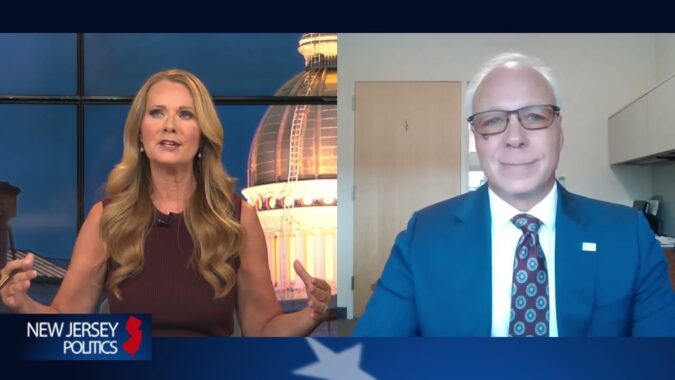The Murphy administration has left the Legislature out of the process by planning to adopt the governor’s proposed ban on new gasoline engine cars, NJBIA’s Deputy Chief Government Affairs Ray Cantor told Laura Jones on the latest episode of “New Jersey Politics” that aired Oct. 7 on WJLP/On NJ.
“This is a proposal to change a fundamental way of how we live and do business in New Jersey. We think the Legislature needs to be involved in this type of decision,” Cantor said.
Asked by Jones what the impact would be on businesses that must buy electric vehicle charging stations for the employees to use while they are at work all day, Cantor said the upfront costs to businesses is an example of one of many ramifications of the proposed rule.
“If you read the rule proposal that the state Department of Environmental Protection put out … they recognize that all these things are issues that need to be resolved, but they’re not putting forth any solutions,” Cantor said. “We would argue that before you fundamentally change how people move around and how they travel and frequent small businesses, these issues need to be resolved upfront.”
The Murphy administration is now accepting public comments on its proposal to phase in a ban on the sale of new gasoline powered vehicles by mandating electric vehicles (EVs). Currently, EVs are only 8% of new car sales, but would be required to be 43% of new car sales by 2027 and 100% by 2035, he said.
“That’s an amazing ramp up and the problem is that these cars for most people in this state, especially low- and moderate-income folks, are not affordable,” Cantor said.
Under the rule, if EV sales targets are not met during the phase-in period, sales of gas vehicles will be restricted, thereby driving up their cost, Cantor pointed out.
“Once you start limiting the supply of (new) gas-powered cars, just from a simple supply and demand perspective, the costs of used cars are going to go up as well,” Cantor pointed out. “We think as soon as this rule gets adopted, you’re going to start seeing the market forces happen and more and more people will not be able to afford cars. This is a serious problem.”
Cantor said NJBIA was supportive of incentives to increase the market for EVs but opposes mandates that require EV sales, especially when the supporting infrastructure is not yet in place. For example, not enough focus has been placed on where all the new EVs the rule envisions would be charged because not everyone in New Jersey has a house in the suburbs with a private garage, he said.
To view the entire interview, go here.

